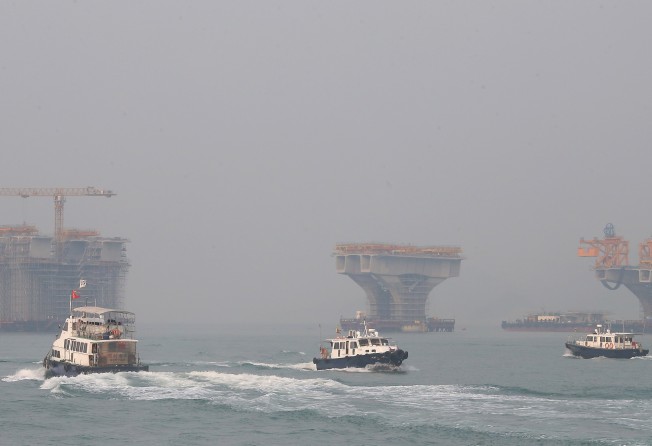Concrete test problems on Hong Kong-Zhuhai-Macau bridge should lead to review of labs

As a retired engineer, I’m becoming increasingly irritated by misleading media reports about the quality of the concrete used for the Hong Kong-Zhuhai-Macau bridge. Legislators have even suggested sections of the bridge may need to be demolished and rebuilt while some leading engineers referred to areas of “bad concrete” and the need for “bridge rectification works”.
With respect, these sorts of comments are premature and alarmist, based on the information released. What appears to have happened is that a government laboratory (managed by an outside contractor) – responsible for physically testing cube samples of the concrete used for construction of the bridge – has failed to properly carry out and/or report on the tests.
Thus, the test results cannot be relied upon. However, it does not follow that the lack of reliable test results indicates the concrete or workmanship on the bridge itself is substandard.
While this regrettable uncertainty should never have arisen, the integrity of the actual bridge concrete can be checked relatively easily, by in-situ sampling and testing of the bridge structure and follow-up action, if any, determined. I would hazard a guess that no remedial works will be required, not least because the contractors responsible for physical construction of the bridge and their concrete suppliers are experienced and independent of the test laboratory. Also, the physical construction works are closely monitored on site by independent consultants on behalf of the government and all are in turn overseen by the Highways Department, which has a high level of expertise.
Of more concern to me is that the test laboratory is accredited under the Hong Kong Laboratory Accreditation Scheme (HOKLAS) to carry out tests on concrete and other construction materials. This accreditation is a prerequisite for test laboratories on government construction projects. However, given that these problems were overlooked earlier (“Bridge problem was missed a year ago”, May 26), this raises concerns about the work done by the government laboratory. Are there as yet undiscovered problems? A full review is needed of all HOKLAS accredited laboratories. If this is not done, the government will have failed to allay concerns about the quality of materials used in construction projects throughout Hong Kong. HOKLAS must implement much more rigorous monitoring and auditing of the operation of its accreditation scheme and ensure its integrity can be relied upon by the construction industry.
Doug Miller, Tai Po